Turning Points in Christian History 3
Stacy Ikard
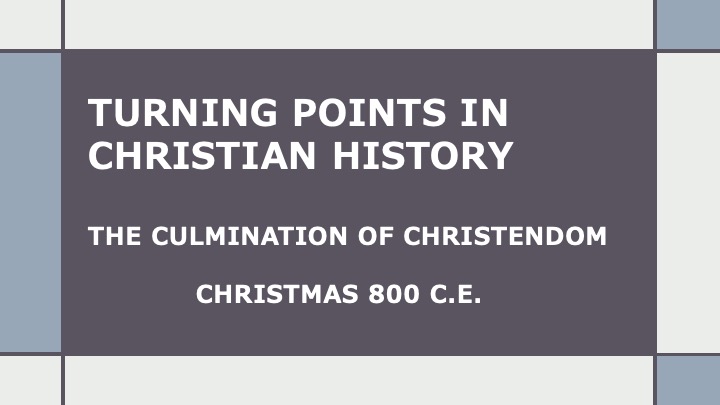
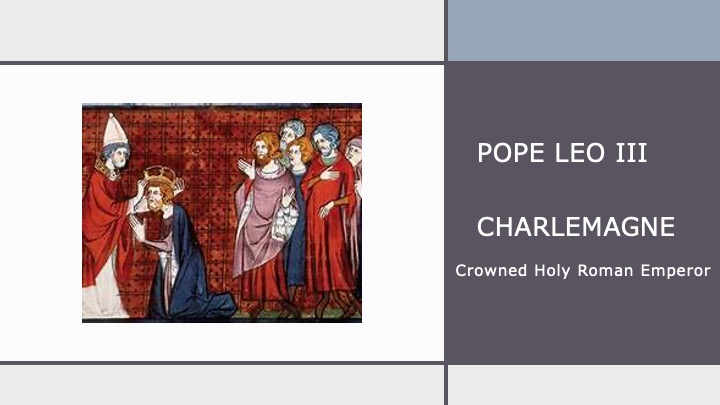
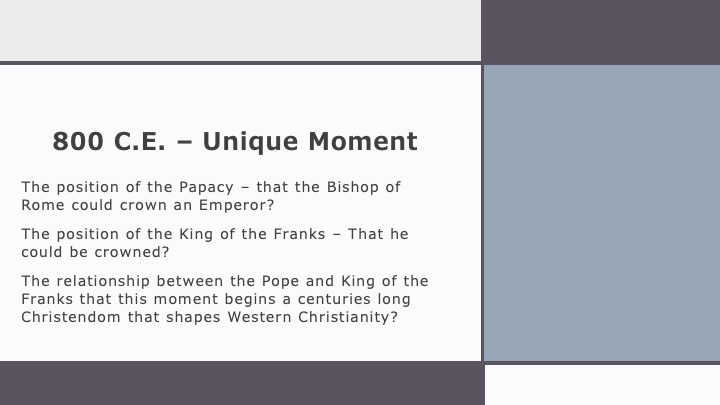
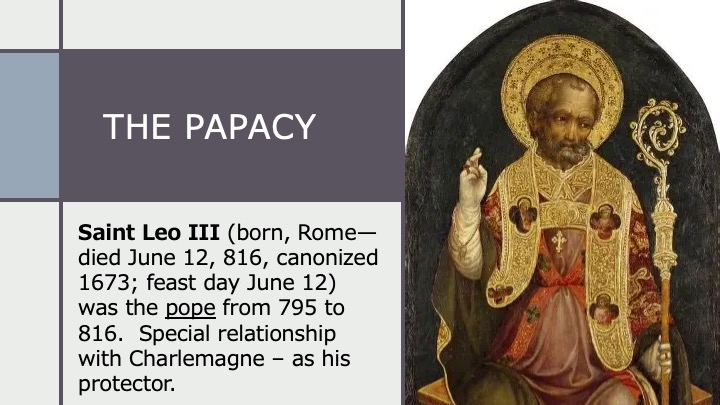
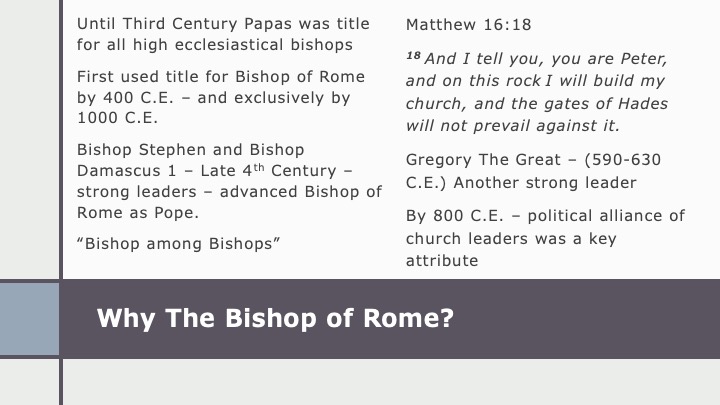
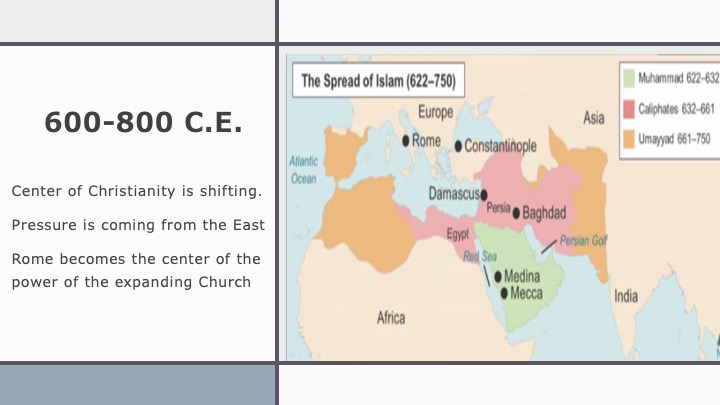
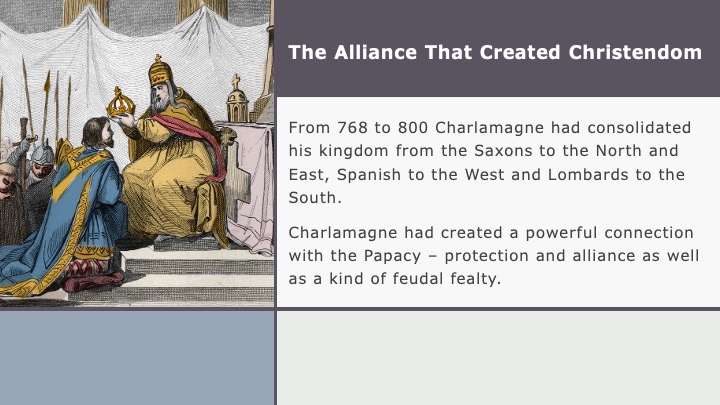
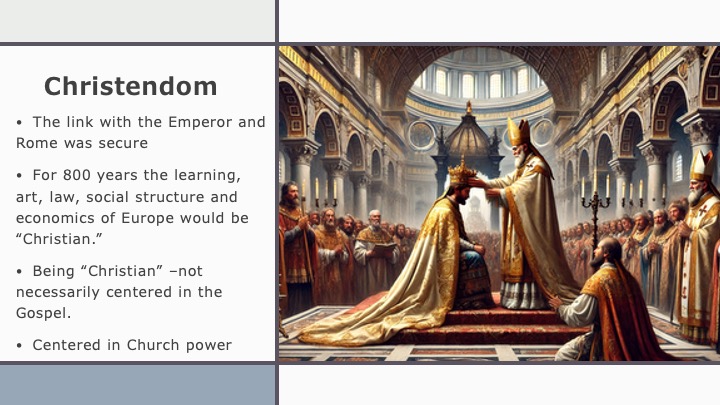
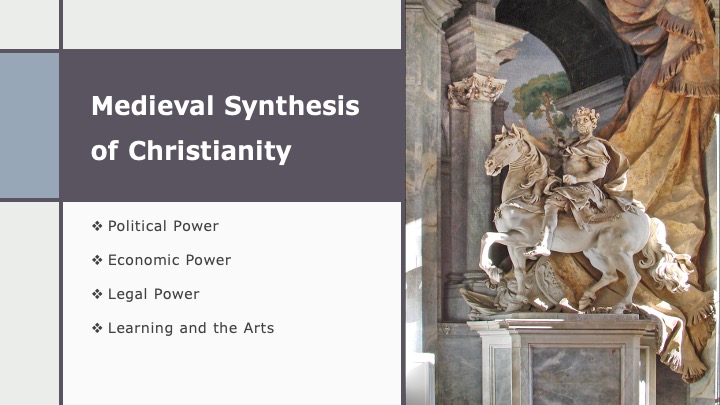
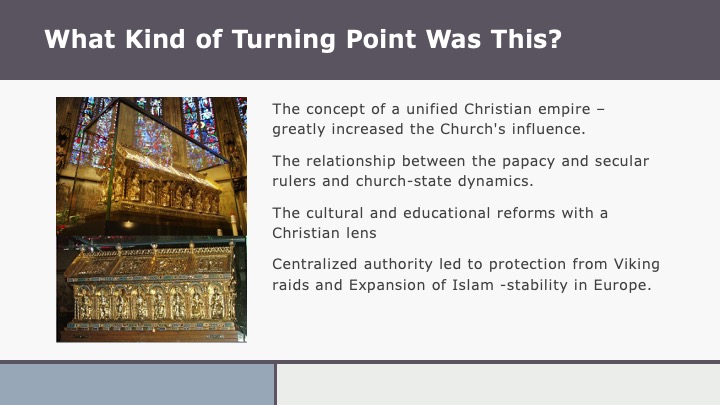
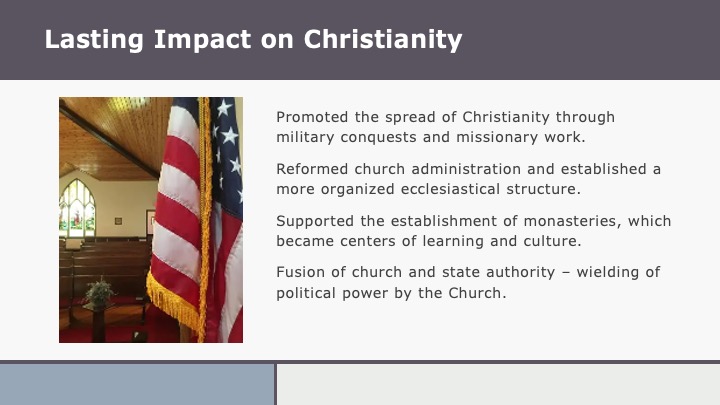
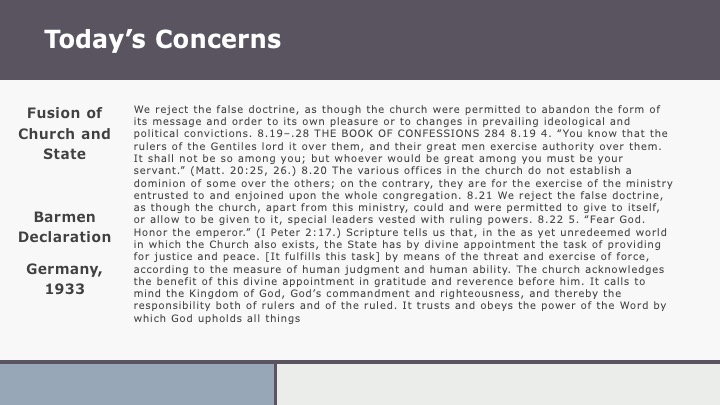
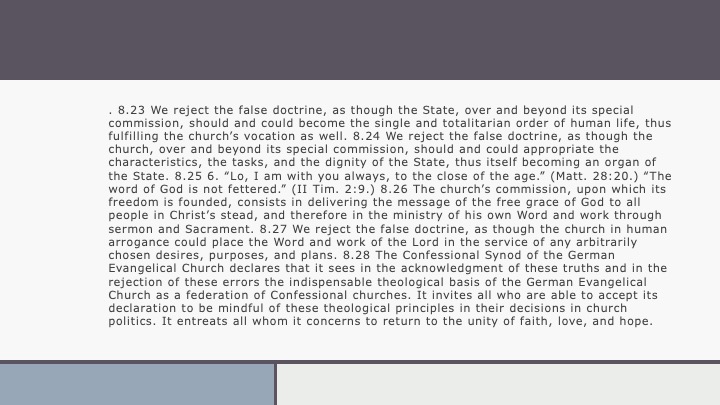
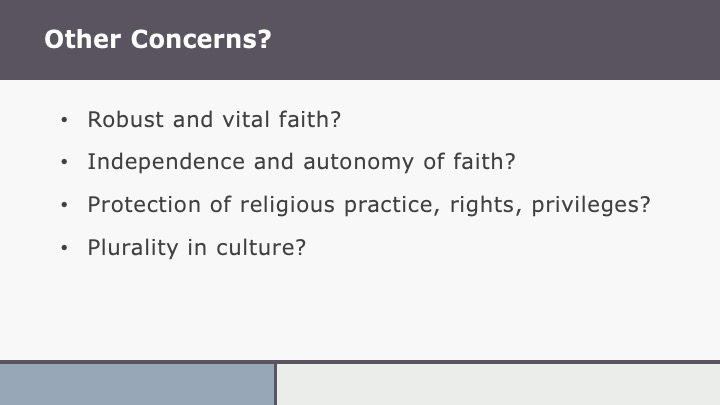
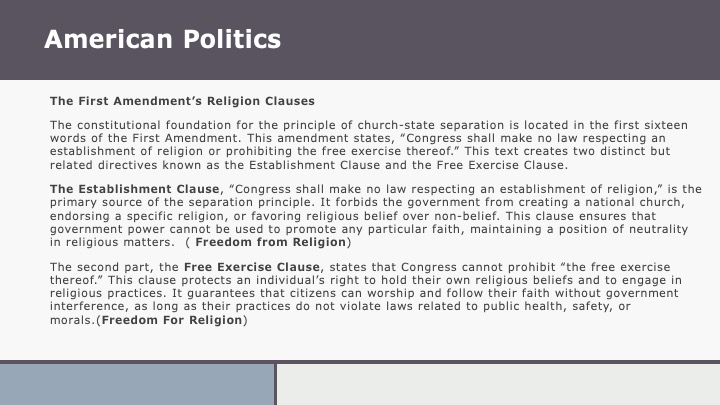
Turning Points in Christian History 3
Links
<< Home >> << Turning Points Menu >>
Turning Points 3 - The Text
Turning points in Christian History 3
The Culmination of Christendom
Christmas 800 C.E.
Pope Leo III
Charlemagne
Crowned Holy Roman Emperor
The position of the Papacy – that the Bishop of Rome could crown an Emperor?
The position of the King of the Franks – That he could be crowned?
The relationship between the Pope and King of the Franks that this moment begins a centuries long Christendom that shapes Western Christianity?
The Papacy
Saint Leo III (born, Rome—died June 12, 816, canonized 1673; feast day June 12) was the pope from 795 to 816. Special relationship with Charlemagne – as his protector.
Until Third Century Papas was title for all high ecclesiastical bishops
First used title for Bishop of Rome by 400 C.E. – and exclusively by 1000 C.E.
Bishop Stephen and Bishop Damascus 1 – Late 4th Century – strong leaders – advanced Bishop of Rome as Pope.
“Bishop among Bishops”
Matthew 16:18
18 And I tell you, you are Peter, and on this rock I will build my church, and the gates of Hades will not prevail against it.
Gregory The Great – (590-630 C.E.) Another strong leader
By 800 C.E. – political alliance of church leaders was a key attribute
600-800 C.E.
Center of Christianity is shifting.
Pressure is coming from the East
Rome becomes the center of the power of the expanding Church
The Alliance That Created Christendom
From 768 to 800 Charlamagne had consolidated his kingdom from the Saxons to the North and East, Spanish to the West and Lombards to the South.
Charlamagne had created a powerful connection with the Papacy – protection and alliance as well as a kind of feudal fealty.
Christendom
• The link with the Emperor and Rome was secure
• For 800 years the learning, art, law, social structure and economics of Europe would be “Christian.”
• Being “Christian” –not necessarily centered in the Gospel.
• Centered in Church power
Medieval Synthesis of Christianity
v Political Power
v Economic Power
v Legal Power
v Learning and the Arts
Lasting Impact on Christianity
Promoted the spread of Christianity through military conquests and missionary work.
Reformed church administration and established a more organized ecclesiastical structure.
Supported the establishment of monasteries, which became centers of learning and culture.
Fusion of church and state authority – wielding of political power by the Church.
Today’s Concerns
Fusion of Church and State
Barmen Declaration
Germany, 1933
We reject the false doctrine, as though the church were permitted to abandon the form of its message and order to its own pleasure or to changes in prevailing ideological and political convictions. 8.19–.28 THE BOOK OF CONFESSIONS 284 8.19 4. “You know that the rulers of the Gentiles lord it over them, and their great men exercise authority over them. It shall not be so among you; but whoever would be great among you must be your servant.” (Matt. 20:25, 26.) 8.20 The various offices in the church do not establish a dominion of some over the others; on the contrary, they are for the exercise of the ministry entrusted to and enjoined upon the whole congregation. 8.21 We reject the false doctrine, as though the church, apart from this ministry, could and were permitted to give to itself, or allow to be given to it, special leaders vested with ruling powers. 8.22 5. “Fear God. Honor the emperor.” (I Peter 2:17.) Scripture tells us that, in the as yet unredeemed world in which the Church also exists, the State has by divine appointment the task of providing for justice and peace. [It fulfills this task] by means of the threat and exercise of force, according to the measure of human judgment and human ability. The church acknowledges the benefit of this divine appointment in gratitude and reverence before him. It calls to mind the Kingdom of God, God’s commandment and righteousness, and thereby the responsibility both of rulers and of the ruled. It trusts and obeys the power of the Word by which God upholds all things.
. 8.23 We reject the false doctrine, as though the State, over and beyond its special commission, should and could become the single and totalitarian order of human life, thus fulfilling the church’s vocation as well. 8.24 We reject the false doctrine, as though the church, over and beyond its special commission, should and could appropriate the characteristics, the tasks, and the dignity of the State, thus itself becoming an organ of the State. 8.25 6. “Lo, I am with you always, to the close of the age.” (Matt. 28:20.) “The word of God is not fettered.” (II Tim. 2:9.) 8.26 The church’s commission, upon which its freedom is founded, consists in delivering the message of the free grace of God to all people in Christ’s stead, and therefore in the ministry of his own Word and work through sermon and Sacrament. 8.27 We reject the false doctrine, as though the church in human arrogance could place the Word and work of the Lord in the service of any arbitrarily chosen desires, purposes, and plans. 8.28 The Confessional Synod of the German Evangelical Church declares that it sees in the acknowledgment of these truths and in the rejection of these errors the indispensable theological basis of the German Evangelical Church as a federation of Confessional churches. It invites all who are able to accept its declaration to be mindful of these theological principles in their decisions in church politics. It entreats all whom it concerns to return to the unity of faith, love, and hope.
Other Concerns?
• Robust and vital faith?
• Independence and autonomy of faith?
• Protection of religious practice, rights, privileges?
• Plurality in culture?
American Politics
The First Amendment’s Religion Clauses
The constitutional foundation for the principle of church-state separation is located in the first sixteen words of the First Amendment. This amendment states, “Congress shall make no law respecting an establishment of religion or prohibiting the free exercise thereof.” This text creates two distinct but related directives known as the Establishment Clause and the Free Exercise Clause.
The Establishment Clause, “Congress shall make no law respecting an establishment of religion,” is the primary source of the separation principle. It forbids the government from creating a national church, endorsing a specific religion, or favoring religious belief over non-belief. This clause ensures that government power cannot be used to promote any particular faith, maintaining a position of neutrality in religious matters. ( Freedom from Religion)
The second part, the Free Exercise Clause, states that Congress cannot prohibit “the free exercise thereof.” This clause protects an individual’s right to hold their own religious beliefs and to engage in religious practices. It guarantees that citizens can worship and follow their faith without government interference, as long as their practices do not violate laws related to public health, safety, or morals.(Freedom For Religion)